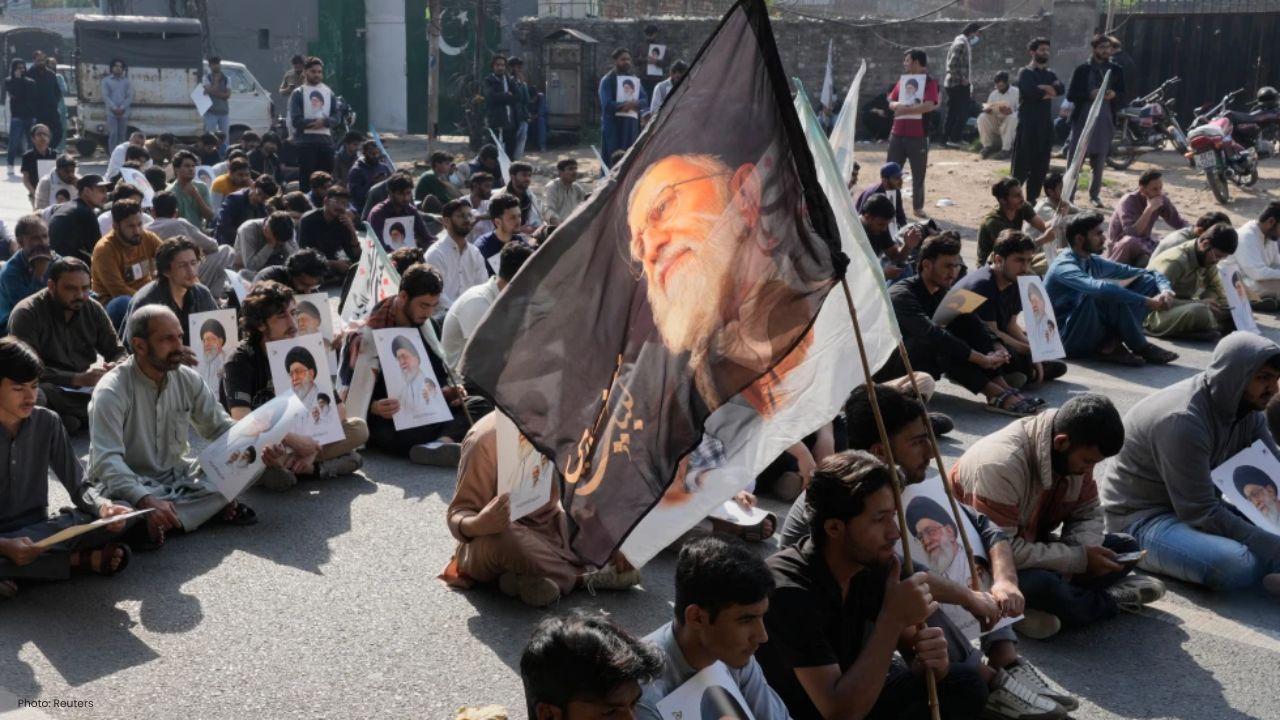
Post by :
Photo: Reuters
On 17 September 2025, Australia faced an unusual situation that directly affected the country’s financial sector. The Australian government had suddenly imposed a ban on social media platforms, and this raised serious concerns about whether important online services like banking, payments, and customer communications would continue to run smoothly.
Because banks in Australia depend on the internet and digital systems to handle millions of daily transactions, they needed to check if such restrictions would impact their operations. To prepare for possible disruptions, banks started testing special software designed to keep services running even when social media and other internet platforms are restricted.
This software, which is jointly owned by major Australian banks, is being carefully tested to make sure people can still transfer money, pay bills, and use apps without any interruption, even under internet restrictions.
Why the Social Media Ban Happened
The government has not given full details about why it banned social media, but such actions are usually linked to concerns about security, misinformation, or public unrest. Some experts say the ban may have been imposed to stop the spread of harmful messages online. Others believe it could be a test of how the country would function if access to certain platforms was cut off.
For ordinary people, the sudden ban was shocking. Many Australians woke up to find they could not open or use their favorite apps like Facebook, Instagram, or X (Twitter). Businesses that depend on social media to reach customers also felt the immediate impact.
How Banks Are Responding
The main question was: Would the social media ban also affect online banking?
Banks in Australia reacted quickly. They activated their contingency plans, which are special systems built to handle emergencies. The banks used their jointly owned software platform to test how payments, credit card transactions, and other financial operations could continue smoothly.
The goal was simple: to protect customers from disruptions. Bank officials wanted to make sure people could still buy groceries, pay rent, and access their savings without worrying about technical failures.
The Role of the Special Software
The software being tested is not a new invention. It was developed over time by Australia’s largest banks to handle crises such as cyberattacks, natural disasters, or communication failures.
Here’s how it works:
Customers’ Concerns
For ordinary Australians, the biggest concern was access to money. Many people worried:
The banks quickly issued reassurances. They told customers that their accounts were safe, and that they could continue using ATMs, apps, and online banking as usual. Some small delays might happen, but overall, essential services would remain available.
Why This Matters
Australia is a highly digital country. Most payments are made electronically, and people rarely use cash. From buying coffee in the morning to paying electricity bills, nearly every activity depends on digital transactions.
If banking services were disrupted, it would affect millions of people within minutes. Shops might not be able to accept payments, businesses could lose sales, and families might struggle to pay for daily needs.
This is why the government and banks treat the stability of the financial system as a top priority.
Lessons from Around the World
Australia is not the first country to face internet restrictions. In recent years, some countries have imposed temporary bans on social media or even shut down parts of the internet. In those cases, businesses and banks often struggled to keep services running.
By testing this software now, Australia’s banks are trying to learn from other countries’ mistakes and prepare for the future. If a more serious restriction ever happens, they want to make sure the financial system will not collapse.
Experts’ Opinions
Technology experts praised the banks for being proactive. They said testing software during a real social media ban was smarter than running only computer simulations. This way, banks can see real-life problems and fix them quickly.
Some cybersecurity specialists also pointed out that financial institutions are often targets of hackers during crises. A ban on social media could cause confusion, and hackers might try to take advantage of the situation. By testing their systems, banks can stay one step ahead.
Impact on Businesses
Small and medium-sized businesses that rely heavily on social media advertising were among the hardest hit by the ban. They suddenly had no way to connect with customers through platforms they used daily. Many had to turn to email, websites, or direct messaging apps that were still available.
Banks realized that if businesses could not reach customers, there might be fewer payments or online sales. This made it even more important to keep the financial system strong and running smoothly.
The Bigger Picture
The incident raises an important question: What would happen if there were larger internet restrictions in the future?
Financial services, communication, education, and even healthcare depend on stable internet access. By preparing now, Australia is building a model that other countries may study. The testing of this special banking software shows how seriously the nation takes the issue of digital resilience.
Reactions from the Public
Many Australians shared mixed feelings about the situation. On one hand, they were frustrated by the social media ban, which cut off communication with friends and limited business activities. On the other hand, they felt reassured that banks were working to keep financial services running.
One university student in Sydney said:
Government’s Role
The government has not announced how long the social media ban will last. Officials only said it was necessary for public safety and national security. However, they promised to review the situation and lift restrictions as soon as possible.
Meanwhile, the government praised banks for their quick response and assured the public that financial stability would be maintained.
Looking Ahead
For now, the tests show that the banking software is working well. Transactions are being processed, ATMs are working, and online services are available. Still, banks know that more challenges may come in the future.
They plan to keep improving the system, adding new layers of security, and running more drills to prepare for unexpected events. The ultimate goal is to make sure that no matter what happens—whether it is a cyberattack, a natural disaster, or another internet restriction—Australians will always be able to access their money.
The sudden social media ban in Australia created confusion and uncertainty. But it also gave banks a rare chance to test their emergency software in real conditions. The results so far show that the system can handle disruptions and keep financial services running smoothly.
For millions of Australians, this is a relief. Even when popular apps are unavailable, they can still shop, pay bills, and transfer money without fear.
This event highlights the importance of preparation, resilience, and cooperation. In today’s digital world, where almost every part of life depends on technology, ensuring the safety of banking systems is more than just a technical issue—it is about protecting people’s daily lives.










Iran Strikes UAE 167 Missiles 541 Drones Hit Dubai
Iran launches large-scale missile and drone assault on UAE forcing airport shutdowns and triggering

UAE Rejects Sudan Conflict Allegations at UN Human Rights Council
Emirati diplomat issues Right of Reply in Geneva dismissing accusations and urging accountability fo

NCM issues fog and low visibility warning in UAE
National Centre of Meteorology warns of fog and reduced visibility in coastal and internal areas, ur

UAE expresses full solidarity with Kuwait over maritime rights
UAE expresses full solidarity with Kuwait and urges Iraq to resolve maritime concerns through intern

Dubai Parks to Offer Free Medical Tests During Ramadan
Free health screening buses will provide eye, blood pressure and glucose tests across major Dubai pa

T20 World Cup India Prepare to Crack Spin Test in Super Eight
Bowling coach Morne Morkel confident Indian batters will regain rhythm against spinners as Super Eig